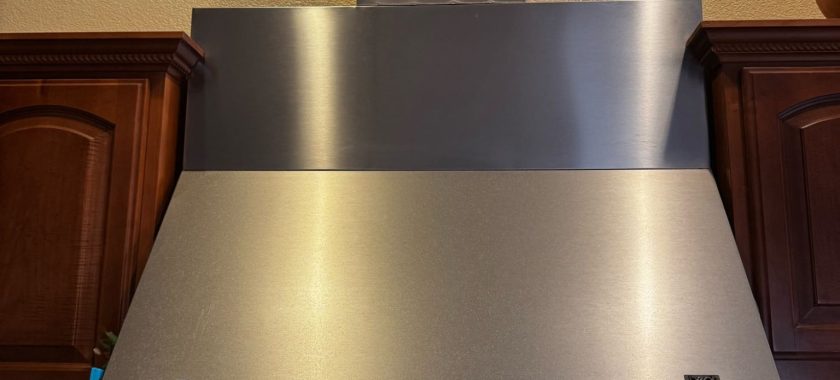A range hood plays a critical role in maintaining a clean and healthy kitchen environment. By extracting smoke, steam, grease, and odors, it ensures better air quality and enhances the cooking experience. However, over time, many homeowners encounter a common issue: a noticeable drop in suction power. If your range hood isn’t pulling in air as efficiently as it once did, there are two main culprits worth investigating—clogged filters and a worn motor.
Clogged Filters: The Usual Suspect
One of the most frequent reasons for decreased suction is clogged filters. Whether you have a ducted or ductless range hood, filters serve as the first line of defense against grease and particulates. These filters, typically made of metal mesh or charcoal, trap airborne grease before it enters the venting system.
Over time, these filters can become saturated with grease, dust, and food particles. As a result, air struggles to pass through, significantly reducing the hood’s effectiveness. If left unattended, clogged filters can cause additional strain on the motor and internal components, potentially leading to more serious malfunctions.
How to Identify Clogged Filters:
- You notice visible grease buildup on the filter surface.
- The range hood sounds louder than usual but does not effectively remove smoke or odor.
- Airflow seems weak even at the highest speed setting.
- A noticeable greasy film forms on surrounding cabinets and walls.
Solution:
Cleaning or replacing filters is often the quickest fix. Metal mesh filters can usually be washed in warm soapy water or even in the dishwasher. Charcoal filters, common in ductless systems, need replacement every 6 to 12 months depending on usage.
Worn or Failing Motor: A More Serious Concern
If your filters are clean and the suction issue persists, it may be time to consider the health of the motor. The motor is the heart of the range hood, driving the fan that extracts air and pollutants. Over time, constant use, exposure to heat, and accumulation of debris can lead to motor degradation.
Signs of a Worn Motor:
- The fan operates inconsistently or not at all.
- You hear humming, rattling, or grinding noises.
- There’s a burning smell during operation.
- Suction remains weak even after filter maintenance.
- The fan continues to spin slowly even when set to high power.
A failing motor not only affects suction but also poses potential electrical risks if it begins to overheat or short out.
Solution:
Motor issues typically require professional assessment and repair. Depending on the model and age of your range hood, the motor may be repairable or need replacement. Continuing to use a malfunctioning motor can cause further damage to the electrical system or internal wiring.
Other Possible Causes of Weak Suction
While filters and motors are the top suspects, a few additional factors could contribute to reduced performance:
- Blocked ductwork: In ducted systems, obstructions like birds’ nests, accumulated debris, or collapsed ducts can restrict airflow.
- Improper installation: Poor vent design or incorrect installation may lead to backdrafts or air leakage.
- Fan blade damage: Bent or dirty fan blades can reduce airflow efficiency.
- Control board issues: In rare cases, the problem may be with the electronic control board failing to regulate fan speed.
When to Call a Professional
If basic maintenance like filter cleaning doesn’t restore your range hood’s power, it’s wise to contact a qualified technician. Diagnosing motor wear, internal wiring issues, or ductwork complications requires expertise and the right tools.
Chula Vista Appliance Repair Company specializes in fast, reliable repairs for all major kitchen appliances—including range hoods. Our experienced technicians can quickly pinpoint the issue, whether it’s a clogged filter, worn motor, or deeper electrical fault, and restore full functionality to your hood.
Don’t Ignore the Signs
A loss in suction is more than an inconvenience—it can affect air quality in your home, increase indoor pollutants, and contribute to greasy buildup in your kitchen. Addressing the problem early ensures safety, efficiency, and a longer lifespan for your appliance.
Contact Chula Vista Appliance Repair Company today for expert diagnostics and repairs. Let your range hood work the way it was designed to—keeping your kitchen fresh, safe, and clean.
Contact us
(619) 880-5508


